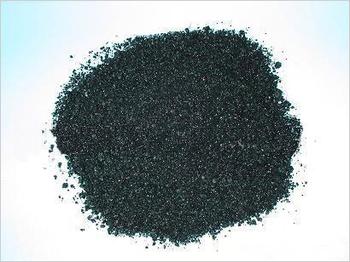 It is understood that in 2012, the nitrogen fertilizer industry can maintain a relatively good trend, on the one hand because of the decline in raw material prices to reduce production costs; the other hand, because of the market competition in previous years, small capacity was eliminated, resulting in the market is effective in the short term The production capacity is decreasing. However, the phosphate fertilizer industry is currently running at a loss. If the export policy is not adjusted, it will certainly cause industry pain. Therefore, there may be fine-tuning of the P fertilizer export policy.
It is understood that in 2012, the nitrogen fertilizer industry can maintain a relatively good trend, on the one hand because of the decline in raw material prices to reduce production costs; the other hand, because of the market competition in previous years, small capacity was eliminated, resulting in the market is effective in the short term The production capacity is decreasing. However, the phosphate fertilizer industry is currently running at a loss. If the export policy is not adjusted, it will certainly cause industry pain. Therefore, there may be fine-tuning of the P fertilizer export policy. Jiang Jitao, general manager of Luxi Chemical Phosphate Compound Fertilizer Co., Ltd. believes that the current tariff policy is not favorable to the development of the phosphate and compound fertilizer industry. Due to poor export, the current operating rate of phosphate fertilizer companies is only about 50%, and the compound fertilizer industry The operating rate is even only 20%. He said: "If we want to control exports through strict tariffs to achieve the adjustment of the fertilizer industry, I don't think the significance of doing so is high. Especially, the concentration of the phosphate fertilizer industry is relatively high. The current competition is already the competition among large enterprises. According to the current market prices, phosphate fertilizer companies are already operating at a loss. If exports cannot be liberalized, phosphate fertilizer companies cannot guarantee normal production. In the long run, they are extremely unfavorable to the development of the industry."
According to statistics from the National Bureau of Statistics, from January to May in 2012, the total assets of 1,281 phosphorus and compound fertilizer production enterprises were 255.2 billion yuan, and the asset-liability ratio was 63.6%. In the first five months, the industry's main business income was 160.1 billion yuan, and the profit was 6.13 billion yuan, which was a year-on-year decrease of 2.3%. Phosphorus fertilizer realized a profit of 9.0 billion yuan, a year-on-year decrease of 34.7%. The efficiency of the ammonium phosphate backbone enterprises declined sharply. In the second half of the year, new plant capacity was released, phosphate fertilizer production continued to grow, and exports were declining. Therefore, the contradiction between supply and demand will become more pronounced in the second half of the year. Especially after the end of autumn fertilization, the downward pressure on the price of diammonium phosphate will increase and companies will run at a loss. Therefore, Jiang Jitao suggested that according to the current domestic and international economic situation and the current slowdown in domestic trade growth, it is necessary to increase the export window period of 1-2 months. This will not only ease the pressure on domestic production capacity, but also ensure the survival of enterprises. It will also play an active role in the development of the domestic economy.
Through the adjustment of tariffs, the nitrogen fertilizer industry has already eliminated some backward production capacity. Therefore, the profitability of this year's nitrogen fertilizer industry is acceptable. However, unlike the nitrogen fertilizer industry, the concentration of the phosphate fertilizer industry is relatively high, and the top 10 domestic companies are The production capacity accounts for 82% of the total production capacity. According to statistics from related departments, as of the end of this year, the production capacity of DAP can reach 20 million tons (in kind), and the apparent consumption of DAP is usually around 8.5 million tons. According to the usual operating rate of 70%, the output this year will reach 14 million tons, far exceeding domestic demand. According to the current tariff export policy, diammonium phosphate can only be partially exported from June to September, which leads to vicious competition among large companies. At present, the phosphate fertilizer industry presents an overall loss, which is extremely unfavorable to the healthy development of the industry.
Although there is currently no final conclusion on the fertilizer export tariffs next year, it is certain that under the background that the world economy continues to decline and the domestic trade situation is still very severe, the State Council has recently issued eight positive policies for stabilizing foreign trade growth, although it has not been clear. The loosening of fertilizer exports has also shown positive signs. The NDRC officials predict that the fertilizer export policy in 2013 should still be based on “stability†and will not be strict. However, it is unlikely that it will be liberalized, and the export tariffs of some varieties may be fine-tuned.
Change Purse,Felt Change Purse,Felt Change Pouch
Solar Charger,Fidget Spinner Co., Ltd. , http://www.chsolarcharger.com
